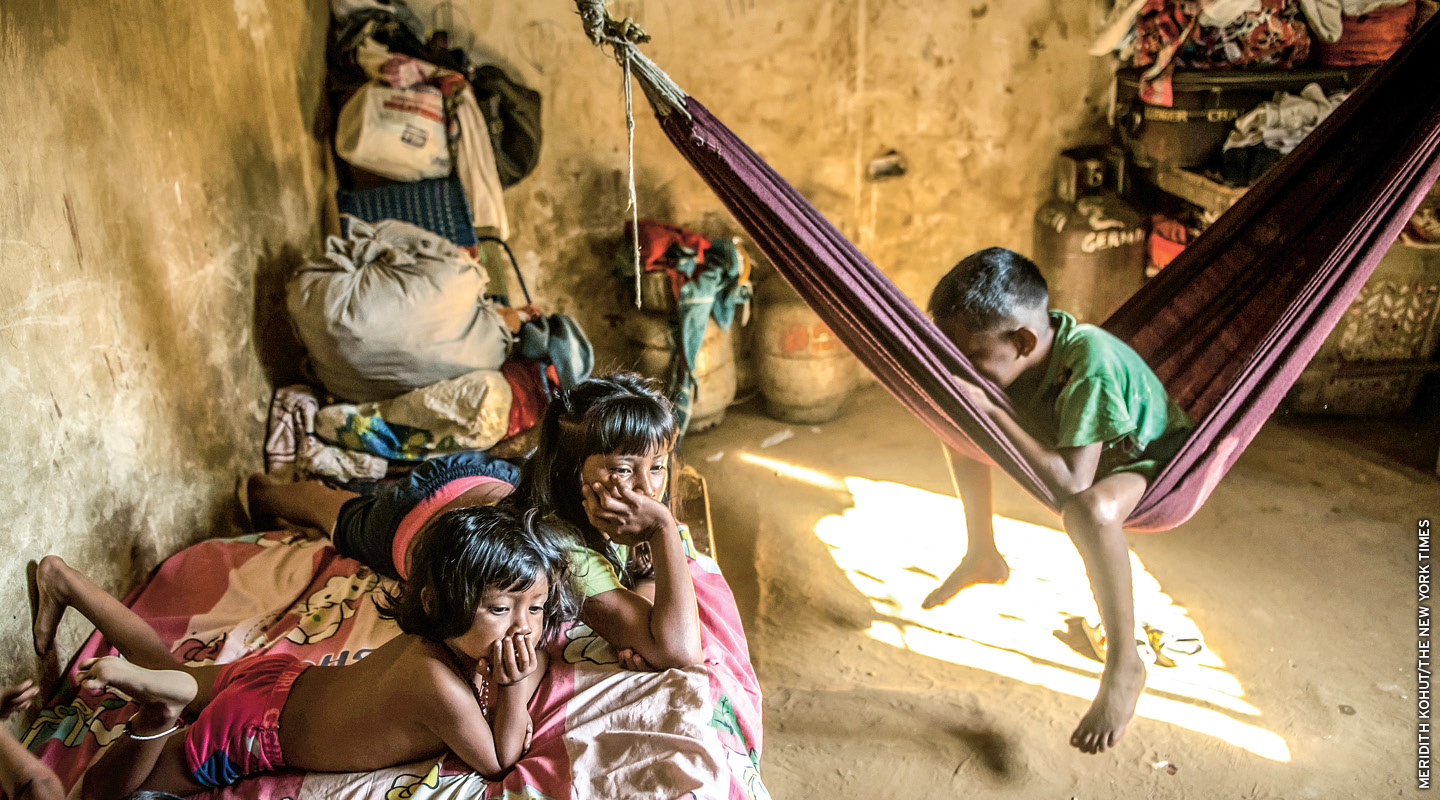Holding back a surge of tears, Aura Fernández kissed her children and climbed aboard the bus, the first leg of her long journey to Colombia.
“I love you,” she said. “Study hard.”
With that, Fernández became part of the flood of Venezuelan parents who have left their country—and their children—in order to find work to support them.
Seven years into an economic collapse, Venezuela’s migrant crisis has grown into one of the largest in the world. Millions have already left. By the end of 2020, an estimated 6.5 million people will have fled, according to the United Nations refugee agency—a number rarely, if ever, seen outside of war.
Holding back a stream of tears, Aura Fernández kissed her children and climbed aboard the bus. It was the first leg of her long journey to Colombia.
“I love you,” she said. “Study hard.”
With that, Fernández became part of the flood of Venezuelan parents fleeing the country. They’re leaving their homes and their children to find work to support them.
Venezuela is seven years into an economic collapse. Its migrant crisis has grown into one of the largest in the world. Millions have already left. By the end of 2020, an estimated 6.5 million people will have fled, according to the United Nations refugee agency. That’s a number rarely, if ever, seen outside of war.

